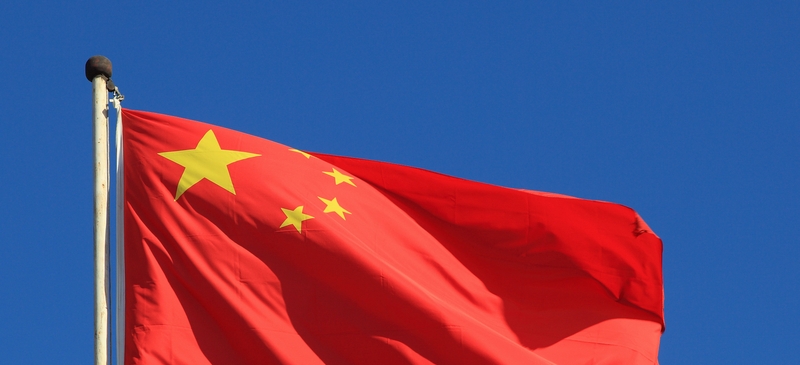
How China is wooing the world
In my local curry house I was greeted like a long-lost friend. A huddle of young waiters gesticulated excitedly towards me. Eventually I realised they were pointing at my bag, picked up during a recent trip to China, and emblazoned with the Chinese script for Shanghai. "You've been to China," they said, "China have just put a man in space - they're taking over from America."
These young Bengalis are not just motivated by regional passions. Everywhere in the developing world people are sitting up and taking notice of the Chinese juggernaut. As a model for development it is a source of inspiration, its giddy growth rates of over 8% a year lifting millions of people out of poverty.
But even more exciting is the prospect of a new superpower that might challenge US hegemony and the American way of doing things. In a paper for the Foreign Policy Centre, Joshua Ramo, a former foreign editor at Time who is based in China, laid out the elements of a new "Beijing consensus", which he sees as a direct challenge to the "Washington consensus" that defined attitudes towards the development debate in the 1990s. Beijing is "driven not by a desire to make bankers happy, but by the more fundamental urge for equitable, high-quality growth", he wrote.
China treats the ideas of privatisation and free trade with caution rather than pursuing them with zeal; the country is defined by its ruthless willingness to innovate and experiment and has created a series of "special economic zones" to test out new ideas. Its foreign policy is driven by a lively defence of national borders and interests (see its attitude towards Taiwan) and an increasing commitment to multilateral institutions such as the United Nations, which it hopes will pin the US down. Together these policies have allowed China to grow without surrendering its independence to such financial institutions as the World Bank and IMF, global companies, or the Bush administration.
This recipe for success is so intoxicating that, on visits to countries as diverse as Iran and South Africa, I have been drawn into discussions about the "Chinese model of development". China's model is seducing leaders in countries as different as Vietnam (which is taking business tips from the thoughts of the former Chinese president Jiang Zemin), Brazil (which is sending study teams to Beijing), and India (Ramgopal Agarwala, an eminent sociologist, observed: "China's experiment should be the most admired in human history. China has its own path.").
Few in the west have picked up on this excitement, because they have looked at China's power simply by measuring the size of its economy or the technology of its army. But by focusing on Chinese hard power (its ability to use military force or economic might to get its way) people are missing the extraordinary rise of the country's "soft power" - the ability of its ideas and values to shape the world. It is an unwritten rule in the minds of the west that though China might become wealthy, it is western values and culture that will continue to define the rules of the world.
That is already changing. For the first time there is an emerging pole that is strong enough to change the way things are done on the global stage. Japan was too small and inward-looking; India is too protectionist; Russia too weak. As China emerges as a superpower, it is desperately trying to present itself as a force for good in the world. The past few years have seen a successful Olympic bid, the creation of an English language international TV channel, a series of high-level visits by President Hu Jintao and Prime Minister Wen Jiabao to key countries, and a concerted attempt to befriend not just China's neighbours but other countries as far afield as Africa and Latin America. Two centuries ago Napoleon warned China was a "sleeping giant" that "once awake would astonish the world". That prediction looks like it is about to be fulfilled.
Rise of the east
The Chinese president, Hu Jintao, laid down a marker for the world in April when he outlined China's ambitions in a speech to the Boao Forum for Asia. "We will quadruple the 2,000 GDP to $4 trillion with a per capita GDP of $3,000, and further develop the economy, improve democracy, advance science and education, enrich culture, foster greater social harmony and upgrade the texture of life for the people," he said.
Some in America responded positively to the remarks - former president George Bush Sr said China's peaceful rise was "very reassuring and very, very important to the Asian horizon and Asia's landscape" - but there are many in America who are disquieted by China's rise. Its military expenditure is rising, though it will still not compete with US defence spending and it has become increasingly bullish over Taiwan. In July, Jiang Zemin - the former president who heads China's armed forces - said China would have recovered the island by 2020.
His remarks coincided with military exercises involving 18,000 troops, designed to demonstrate China's air superiority in the Taiwan Strait. It is also seeking to compete in space: Luan Enjie, the head of the national space programme, said last November that China intends to land a man on the moon by 2020.
One motor of China's growth is its increasing population but with such rapid expansion come problems. Some relate to China's programme of population planning. The one-child policy has created a shortage of female babies, and the government has admitted that by 2020 China might have as many as 40 million single men, which could pose a threat to social stability.
